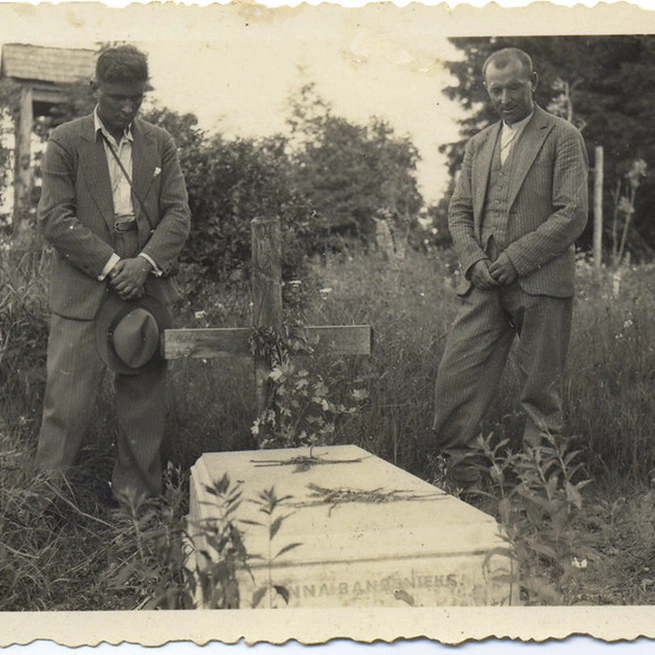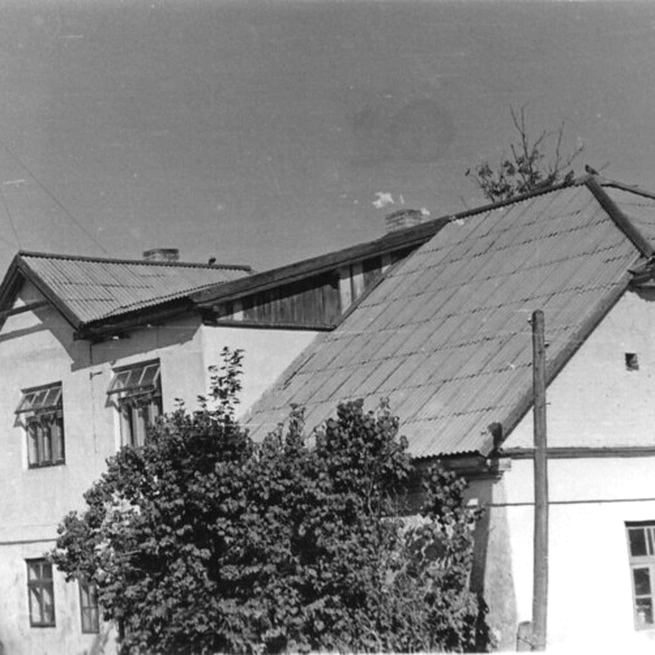
After about six months in Snepele my mother died, it gave me a big shock. Her intestines had twisted and she was taken to Kuldiga hospital where they operated, but it was too late. I was going to see her every day, 20 kilometres on my bicycle, but she died within a few days. I bought the coffin myself, as my brothers were not prepared to pay anything. I was very upset when I went to Ingas, we were close friends with Milda by then, and she comforted me which made us even closer. Milda’s brother Adolfs harnessed two horses to the best sprung carriage and we went to my father’s farm for the funeral. Mother’s brother had come from Pavilosta (where mother was born) where he was a director of a Baptist wind ensemble. My oldest brother carried the cross and the other four sons carried the coffin and we lowered it in the grave. It was autumn.
Feb 3, 2010
The next nearest factory was in Kuldiga 18 kilometres away, but the Snepele factory only received milk from about 30 farms. The others processed the milk themselves and made butter which they sold in the market in Kuldiga. I suggested to the committee president that the two of us should canvas all of the farms in a 4-5 kilometre radius, which we visited on my motorbike. We offered them to try selling the milk to the factory for a month, we even lent them cans for transporting the milk. The results were surprisingly good; their income was 100% higher this way.
Feb 6, 2010
The next year the Germans came in. They found all the documents and lists left by the Russians and the names of people who had denounced those arrested by the Russians. Amongst them was the factory cashier. They were jailed in Kuldiga, condemned to death and shot. The military court captain, Kukis, was a previous National Guard officer. After the Germans came in, a lot of the administration was taken on by past Latvian National Guard, and at first the police in Kuldiga was run by agricultural officers, managed by Peteris Skujins and Pelekis, both from the agriculture department.
Feb 9, 2010

At the factory all went on as before, the equipment had been rebuilt for steam and it was going well. Only our living quarters were still the same - not satisfactory. I was planning and suggested that a second floor could be put above the factory for a flat. At that time the materials for building or adding to milk factories were possible to get. I knew Kuldiga, the district building inspector, and invited him to the factory to have a look. He checked the existing walls on the lower floor which were made of stone, about one meter thick. He decided that they were strong enough to support the upper floor, and he himself did the sketch and promised to draw up the plans which contained a room at each end of the roof, a bedroom, a living room and a kitchen in the middle. I also managed to get all the materials myself. I went to the cement factory and saw the manager bringing him two kilograms of butter as a present (at that time all business was done this way by seeing the appropriate person on a one-to-one basis). He put the butter in his desk drawer and wrote an official order at the current price for cement. That was also how all the other materials and tradesmen were organised. The work went on very quickly and for 40-50 kilograms of butter and some thousands of worthless German money (I knew that after a war money became worthless, that has always happened) the factory gained a great increase in value.
Feb 10, 2010